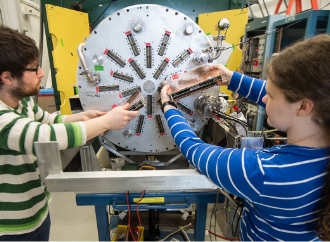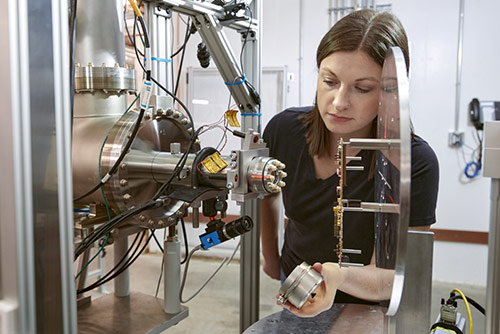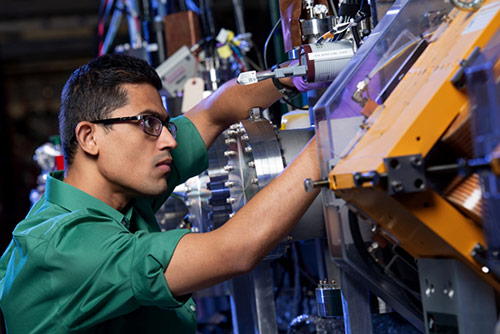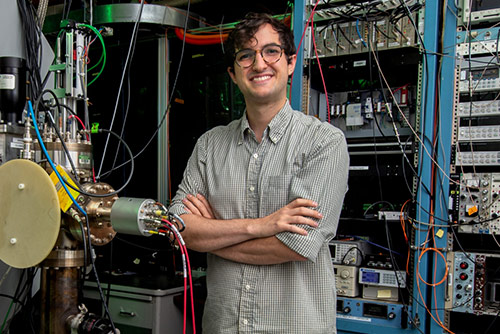
Facility for Rare Isotope
Beams at Michigan State University
Nuclear Physics Graduate Program in the U.S.
of all Nuclear Physics PhDs Graduate from MSU
Job Placement
Study and pursue research alongside renowned faculty researchers at a world-leading nuclear science facility. At the Facility for Rare Isotope Beams (FRIB), graduate-student researchers seek to answer fundamental questions in the areas of nuclear science, radiochemistry, and accelerator science. Questions like, why do atoms exist? Where did they come from? How can we use accelerator technology and related technology to solve society’s problems?
As a Michigan State University (MSU) graduate student at FRIB, you’ll receive an individualized curriculum and conduct unique, hands-on research in nuclear physics, nuclear astrophysics, nuclear chemistry, accelerator physics, or engineering. You’ll graduate well-prepared for a career in research, education, or industry.


Not only have we been top-ranked in the country for 29 years, we also lead in graduating students with nuclear physics PhDs. Here, you’ll learn and work in a world-leading, state-of-the-art facility to develop crucial skills for research, development, and teamwork in a vibrant and welcoming environment. Prepare for a variety of careers utilizing world-class faculty and research, and graduate more than half a year faster than the national average.

Make impactful contributions to scientific discovery. You’ll work alongside world-renowned faculty mentors conducting hands-on research using the world’s most powerful heavy-ion accelerator as well as state-of-the-art computers and specially designed equipment to make novel discoveries with applications in medicine, national security, and more. Present your findings at national and international conferences to build your network and expand your career options.

Here at FRIB, students and faculty share a common interest—to contribute to society through scientific discovery. To broaden participation in solving science problems, FRIB engages and supports students, faculty, and researchers to study and work in a respectful, collaborative, and welcoming environment.

In addition to exploring your world by conducting research in the lab, we encourage you to also have fun outside of it. Connect with fellow students and scientists on campus in clubs, student organizations, and activities designed for you. And check out the Lansing area's big-city amenities—museums, sporting events, outdoor activities, diverse restaurants, and cultural events—while maintaining a low cost of living and a small-town feel.
Conduct leading-edge research to map the nuclear landscape, to understand the forces that bind nucleons into nuclei, to answer questions about the astrophysical origins of nuclear matter, and to address societal needs related to nuclear science and technology.
Probe how nuclear matter assembles itself in systems from nuclei to neutron stars, understand neutron reactions important for homeland security and astrophysics, and provide applications for society, including in medicine and industry.
Leverage world-class instruments, systems, and experts at FRIB—a world-unique opportunity on a university campus—to pursue an in-demand career. Benefit from short- and long-term training and collaboration opportunities at partner Department of Energy national laboratories.
Train at FRIB on state-of-the-art technologies and advancements in the field to become a next-generation cryogenic-system innovator—a career in high-demand in fundamental research and industrial applications.
With a 100% job placement rate and a nationally recognized academic reputation, you'll be ready for a career as a respected physicist, engineer, or chemist.
Our graduates go on to: